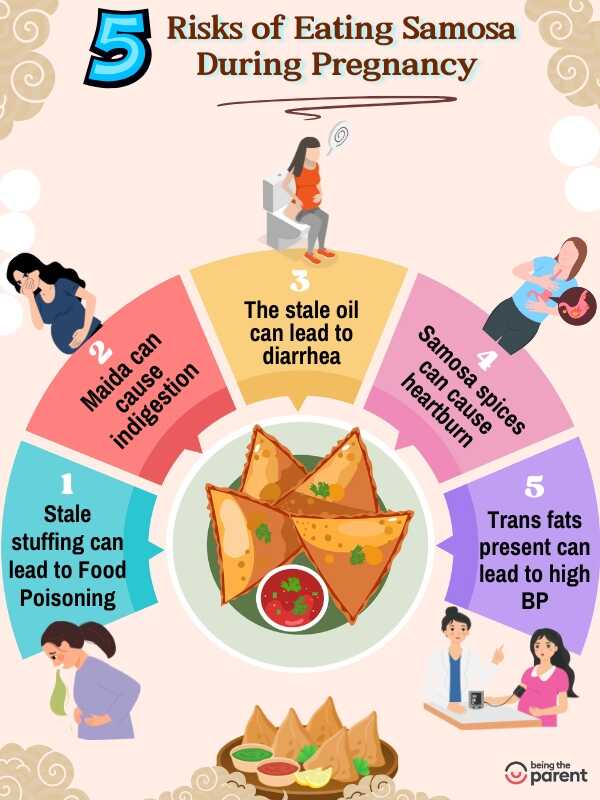 Fertility problems create a huge degree of uncertainty and psychological upheaval in a couple’s routine life. The emotional impact of dealing with infertility is expensive as couples go through a roller-coaster state of disappointment, sadness, and frustration. With the myriad feelings that come with infertility, the journey to conception becomes all the more stressful and unhappy.
Fertility problems create a huge degree of uncertainty and psychological upheaval in a couple’s routine life. The emotional impact of dealing with infertility is expensive as couples go through a roller-coaster state of disappointment, sadness, and frustration. With the myriad feelings that come with infertility, the journey to conception becomes all the more stressful and unhappy.
Although coping with the up and down feelings of infertility is not easy, there are simple techniques to mitigate stress and anxiety. A multifaceted approach that includes open communication with a partner, and having strong social support with friends and family by your side can help ease out the emotional discomfort. Moreover, focusing on self-care activities like exercise, mindfulness, and hobbies can also help to restore mental well-being.
What is Infertility?
Infertility refers to issues in conceiving or becoming pregnant after a year of regular, unprotected physical relationships (1). Infertility can also lead to an inability to carry a full-term pregnancy. As per World Health Organization reports, 1 in 6 people worldwide experience infertility (2)
As infertility is becoming a grave issue, couples who wish to become parents suffer from complex feelings such as anxiety, disappointment, anger, and frustration. (3)
[Read : Types of Infertility and Treatment Options]
Understanding The Emotional Impact of Infertility

The inability to conceive a baby is emotionally draining. Couples go through personal suffering, social stigma, and relationship difficulties to a great extent (4)
Research has also shown that infertility is a silent killer. It impacts all aspects of a person’s marital life and tarnishes their self-esteem to a great extent (5).
Understanding the emotional impact of infertility is important because of the following reasons:
1. To Restore Emotional Well-being
Infertility causes emotional distress in the form of overthinking, anxiety, and sadness. Recognizing these emotions helps address mental health needs in a better way.
2. Relationship Dynamics
Infertility can strain couple bonding (6). Thus, knowing the emotional impact improves communication and support.
3. Coping Strategies
When couples are aware of the infertility issue, they may employ better coping skills by building support systems through friends, family, or professional counselling.
4. Seek Professional Guidance
Knowledge of the emotional impact helps couples seek expert guidance who may provide more empathetic, comprehensive care and support.
How Does Infertility Impact Men And Women

Infertility is often viewed as a women’s issue. However, it’s important to recognize that both male and female factors can play a role in difficulties with conception or maintaining a healthy pregnancy.
Infertility can impact men and women differently. For men, feelings of inadequacy and low self-esteem are at the top (7). For women, infertility causes emotional strain in the form of heightened anxiety, sadness, and guilt.
Overall, infertility affects self-perception in both genders.
Impact of Infertility on Men
Men can feel the emotional burden (8) in the following ways:
- Frustration and anxiety
- Low self-esteem
- Overthinking about medical expenses
- Reduced confidence due to overwhelming societal expectations
- Pressure to conform to the gender role of becoming a father
Impact of Infertility on Women
Infertility can impact women differently (9). Women may experience
- Higher levels of anxiety and sad feelings
- Hopelessness
- Feeling guilty
- Pressure to handle the stigma associated with infertility
- Side effects of fertility treatments
- Strained relationships with partner and his family
Emotional Impact of Dealing With Infertility on Couples

Women grow up visualizing a baby in their arms. Most women start planning how and where they are going to raise their babies.
Infertility problems can inculcate a sense of loss as women tend to feel that they are missing the experience of having a baby naturally. One might feel sad, irritable, and suffer from insomnia and extreme fatigue.
1. Denial and Shock
A day’s delay in your cycles may bring about a lot of hope because you feel that you have done everything to conceive this month. However, when the pregnancy test reads negative it could send one into a state of shock and denial, which can contribute to a sense of loss as well.
2. Anxiety and Stress
Infertility causes a lot of emotional stress leading to overthinking and anxiety(10). Worries about failing to conceive, societal pressure, and the emotional toll of treatment procedures cause significant mental pressure.
3. Guilt and Shame
A sense of helplessness and inadequacy may prevail when you are unable to conceive. As you have visualized a happy family, you may start feeling guilty and shameful about not being able to convert your dreams into reality. (11).
4. Anger and Jealousy
The mental wear and tear of not being able to conceive triggers feelings of jealousy and anger. Couples may feel frustrated by their situation. Sometimes, societal comparison with others who conceived easily adds to the woes.
Studies have shown that anger is a usual reaction of couples who are struggling for years to embrace parenthood naturally (12).
5. Fear and Loneliness
Because one tends to feel inadequate and sail in the boats of guilt and shame, feelings of fear and loneliness may also make their way. What if the other partner wants a child so much that he ends up leaving you?
This may lead one on the path of self-loathing.
6. Intimacy Issues
Couples may experience emotional distance and strained physical connection due to the impact of infertility. They may also lose interest in each other due to the pressure of getting pregnant. Their focus shifts from connection to outcomes, compromising intimacy to a great extent (13).
7. Issues in Couple Bonding
Between charting menstrual and ovulation dates, making love may seem like a thing of the past. You want to have sex and get it done.
Sex may be very much a part of your routine, but it ends up being monotonous and you may lack the passion for each other. Sex may seem more like a chore and be no more pleasurable.
8. Societal Pressure
Couples feel inadequate and judged when pregnancy doesn’t happen on time. Friends and family members may start asking questions for which answers are not present.
This external scrutiny aggravates stress and disrupts the couple’s emotional well-being. Infertility stigma operates where the woman finds it hard to share her feelings and thereby lives in shame, guilt, and secrecy forever (14).
Tips to Cope With Emotional Stressors of Infertility

Infertility creates a huge degree of uncertainty and psychological upheaval in the couple’s routine life. But one must learn to take it easy and avoid making it a colossal issue.
It is seen that some couples let it surmount so much on their minds that intimate relations become a huge issue and sex can no longer be enjoyed. Lovemaking is an important part of most infertility treatments and being panicky keeps you refrained from having good and enjoyable sex.
Here are some simple tips for coping with fertility problems:
- Engage in hobbies that can divert your focus to other pleasurable activities, reducing overthinking tendencies and anxiety.
- Sometimes taking some time off from your regular busy schedule is good to accentuate love and romance in your otherwise prosaic sexual life.
- Remember the crisis is transient and will pass off. If you are seeking some treatment and the doctors are positive, keep your faith in them.
- If there is discord in a marital relationship and it persists even after your best efforts, take the help of couple therapy to restore peace.
- Discussing the situation with your spouse is crucial; it strengthens emotional bonding with your partner.
- Fertility treatments like IVF can be expensive. Discuss and create a financial plan with your partner, starting with health insurance options.
- Practice stress-relief methods like yoga, and meditation so that patience sets in and relaxes your mind steadily. Yoga asanas improve fertility and help calm the mind. Meditation relaxes body and mind and balances sex hormones.
- Set boundaries with friends and family who are too intimidating, so that your emotional space remains calm and stress-free.
- Try joining a support group of people with similar issues so that you gather clarity about the treatment options available and their efficacy.
- Have patience and remind yourself that infertility treatments take time and you’ll achieve success with hope and persistence; not haste.
Seeking Support

If the sad feelings and emotional turmoil persist and you’re unable to help yourself or your partner, it is advisable to seek professional help from a certified psychologist who can help manage stress in a better way. In case your relationship is falling apart due to infertility, couple counselling is advisable so that guidance and relief can be sought at the earliest.
Fertility problems bring a whirlwind of emotions that can make you overwhelmed. Surmounting stress can be harnessed by practising relaxation techniques such as taking deep breaths. Meditation can also be helpful. Indulge in other quality time-spending techniques such as gardening, reading good literature, theatre, writing, painting, etc. Have patience, seek proper treatment and be positive. Like any other ailment infertility, too, is a medical condition and very much curable!
FAQ’s
1. How Does Infertility Affect Daily Life?
Infertility can affect daily life by increasing emotional distress, along with strained relationships and distant bonding with the partner. It may also lead to financial strain due to mounting medical costs. Moreover, infertility creates a sense of uncertainty in daily life, not knowing what the future holds.
2. How to Deal With the Emotional Impact of Infertility?
To deal with the emotional impact of infertility, it is good to educate yourself and engage in emotionally stimulating activities. Moreover, you can seek expert counselling to feel less stressed and anxious.
References
- Overview, Infertility, World Health Organizationhttps://www.who.int/news-room/fact-sheets/detail/infertility
- 1 in 6 people globally affected by infertility, News Release, World Health Organization, April 4, 2023 – https://www.who.int/news/item/04-04-2023-1-in-6-people-globally-affected-by-infertility
- Hasanpoor-Azghdy SB, Simbar M, Vedadhir A. The emotional-psychological consequences of infertility among infertile women seeking treatment: Results of a qualitative study. Iran J Reprod Med. 2014 Feb;12(2):131-8. – https://www.ncbi.nlm.nih.gov/pmc/articles/PMC4009564/
- Tara M. Cousineau, Alice D. Domar, Psychological impact of infertility, Best Practice & Research Clinical Obstetrics & Gynaecology, Volume 21, Issue 2, 2007, Pages 293-308, ISSN 1521-6934 – https://www.sciencedirect.com/science/article/abs/pii/S1521693406001611
- Nagórska Małgorzata , Zych Barbara , Obrzut Bogdan , Darmochwał-Kolarz Dorota, Factors affecting self-esteem and disease acceptance in patients from infertile couples, Frontiers in Public Health, Volume 11, 2023 –
https://www.frontiersin.org/journals/public-health/articles/10.3389/fpubh.2023.1177340/full - Anne M. Hirsch, Stephen M. Hirsch, PHD, The Effect of Infertility on Marriage and Self‐concept, Journal of Obstetric, Gynecologic & Neonatal Nursing, Volume 18, ISSUE 1, P13-20.-
https://www.jognn.org/article/S0884-2175(15)32784-2/fulltext - Fernández-Zapata WF, Cardona-Maya W. Male Infertility – What about Mental Health? Rev Bras Ginecol Obstet. 2023 Oct;45(10):e620-e621. – https://www.ncbi.nlm.nih.gov/pmc/articles/PMC10635789/
- Fisher JR, Hammarberg K. Psychological and social aspects of infertility in men: an overview of the evidence and implications for psychologically informed clinical care and future research. Asian J Androl. 2012 Jan;14(1):121-9. – https://www.ncbi.nlm.nih.gov/pmc/articles/PMC3735147/
- Bakhtiyar, K., Beiranvand, R., Ardalan, A. et al. An investigation of the effects of infertility on Women’s quality of life: a case-control study. BMC Women’s Health 19, 114 (2019). – https://bmcwomenshealth.biomedcentral.com/articles/10.1186/s12905-019-0805-3
- Yusuf L. Depression, anxiety and stress among female patients of infertility; A case control study. Pak J Med Sci. 2016 Nov-Dec;32(6):1340-1343. doi: 10.12669/pjms.326.10828. – https://www.ncbi.nlm.nih.gov/pmc/articles/PMC5216278/
- Rooney KL, Domar AD. The relationship between stress and infertility. Dialogues Clin Neurosci. 2018 Mar;20(1):41-47. – https://www.ncbi.nlm.nih.gov/pmc/articles/PMC6016043/
- Simionescu G, Doroftei B, Maftei R, Obreja BE, Anton E, Grab D, Ilea C, Anton C. The complex relationship between infertility and psychological distress (Review). Exp Ther Med. 2021 Apr;21(4):306. – https://www.ncbi.nlm.nih.gov/pmc/articles/PMC7885086/
- JamaliGandomani S, Taebi M, Mirghiasi AR, Nilforoushan P. Association between infertility factors and perceived relationship quality in infertile couples. J Educ Health Promot. 2022 Nov 26;11:360 – https://www.ncbi.nlm.nih.gov/pmc/articles/PMC9818625/
- Taebi M, Kariman N, Montazeri A, Alavi Majd H. Infertility Stigma: A Qualitative Study on Feelings and Experiences of Infertile Women. Int J Fertil Steril. 2021 Jul;15(3):189-196. – https://www.ncbi.nlm.nih.gov/pmc/articles/PMC8233927/

